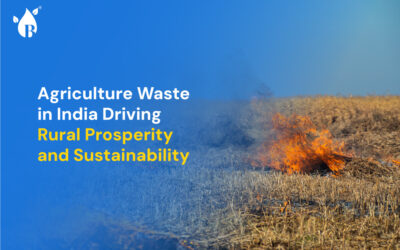
As countries around the world ramp up their climate action plans, India has set an ambitious course with its emerging carbon market under the Carbon Credit Trading Scheme (CCTS) introduced through the Energy Conservation Act, 2021. This initiative aims to drive decarbonization across various industries while building a market that encourages innovation and rewards emission reductions.
While the vision is clear, the journey to a well-functioning carbon market in India involves critical steps. For this market to reach its potential, India needs strong foundations built on policy stability, balanced supply and demand, a robust monitoring system, and alignment with global standards. Here’s a look at how these key elements will help shape a sustainable carbon trading ecosystem in India.
Establishing Policy Stability for India’s Carbon Market
Policy consistency is a foundational pillar for any market, and the carbon trading market in India is no exception. To foster trust, policymakers need to ensure that regulations remain predictable and supportive of long-term goals. A stable policy environment will encourage businesses to engage in carbon credit trading, knowing they can rely on a consistent framework over time. Learning from past experiences with Renewable Energy Certificates (RECs) and Energy Savings Certificates (ESCerts), India can avoid market disruptions by prioritizing regulatory transparency and long-term vision.
Balancing Supply and Demand to Sustain Market Growth
For India’s carbon market to be efficient and sustainable, it’s essential to maintain a balance between supply and demand for carbon credits. This will ensure that prices reflect the true value of emission reductions, incentivizing companies to participate without driving prices too high or too low. Setting ambitious yet realistic emissions reduction targets can help maintain a steady flow of supply and demand, encouraging more organizations to engage and contribute to India’s decarbonization goals.
Strong Monitoring and Compliance Mechanisms
A market’s success depends on trust, and India’s carbon market is no different. Transparent monitoring and verification are critical to ensuring that every credit is valid and verifiable. Technologies like blockchain or AI-powered systems can add layers of transparency, allowing India to create a market that upholds the highest standards. Strong compliance frameworks will deter misuse and assure participants that the carbon market in India is legitimate and accountable.
Integrating India’s Carbon Market with Global Standards
India’s carbon market has the potential to be globally competitive. Aligning with international carbon trading standards can make India’s market attractive to foreign investors while providing an additional funding source for climate projects. By meeting global standards, India can tap into international carbon markets, enhancing the market’s liquidity and drawing investment into India’s green economy. Participation in international agreements, such as those emerging from the Paris Agreement, can further connect India’s carbon market with global trading systems.
A Role for Voluntary Markets in Carbon Trading
India’s carbon market can open opportunities beyond regulated industries by embracing the voluntary carbon market. Companies without mandatory targets could participate by registering emission reduction projects and earning carbon credits. This voluntary approach can help build a more inclusive market, enabling smaller enterprises and sectors to contribute to India’s climate action. Clear guidelines on how voluntary credits interact with the mandatory system can ensure that all contributions reinforce the goals of the compliance-driven market.
A Sustainable, Growth-Oriented Carbon Market in India
India’s journey toward a sustainable carbon market is an exciting prospect with immense potential. With a strong policy foundation, careful market balance, transparent oversight, and global connections, India is well on its way to establishing a carbon market that drives meaningful emissions reductions while fostering economic growth. As the carbon market in India continues to evolve, it will serve as a critical tool in the nation’s mission for a greener and more sustainable future.



